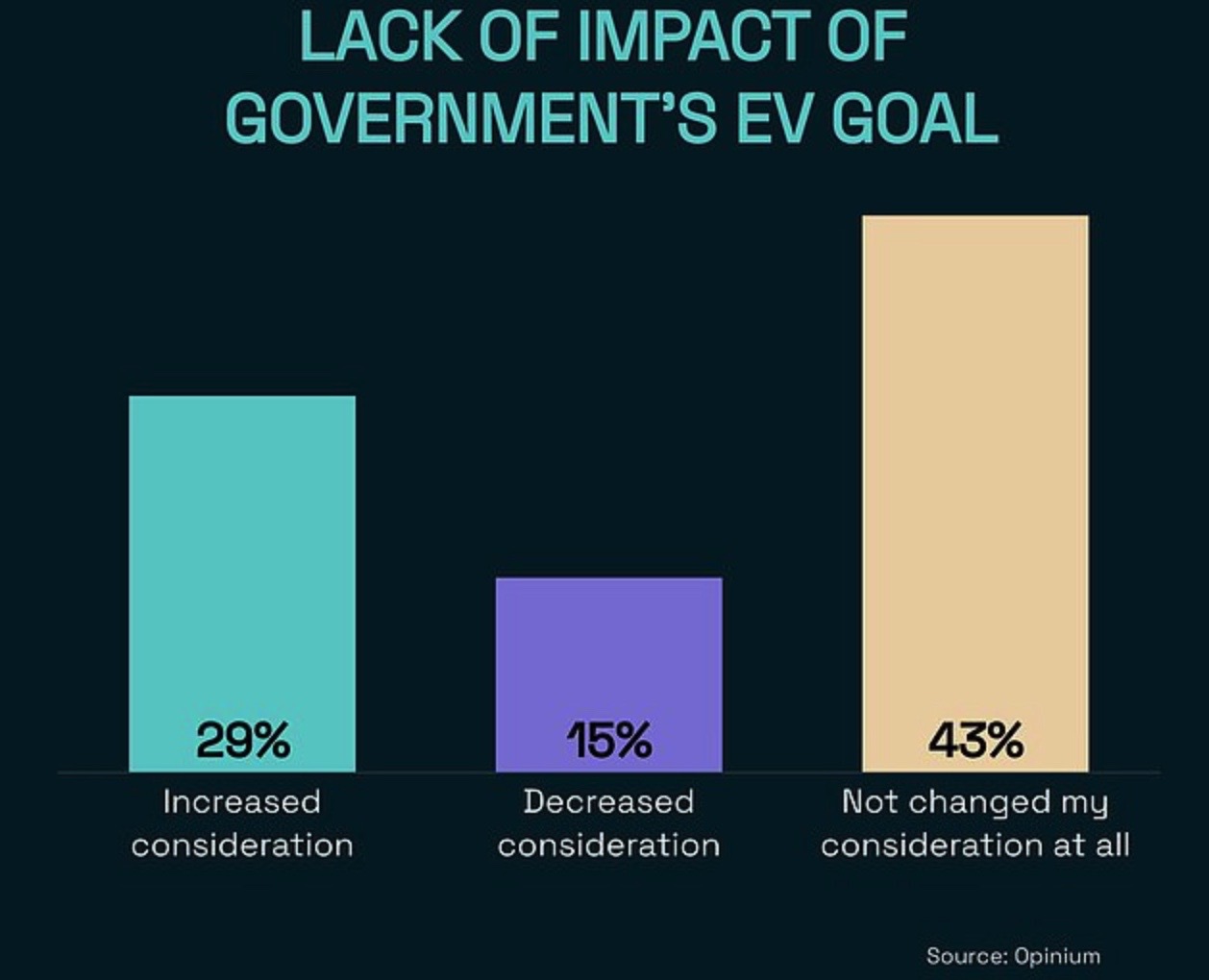Federal Incentives Fail to Sway Majority of Americans towards EV Purchase - Only Households Earning Over $150K Show Strong Interest. Some Americans Express Concerns that Incentives Discourage EV Adoption.
President Joe Biden has set an ambitious target of achieving a two-thirds share of new vehicle sales for electric vehicles by 2032, accompanied by a plan to establish a nationwide network of 500,000 charging stations.
However, the reality paints a different picture, indicating a setback in this aspiration. Despite the government offering tax credits of up to $7,500 to individuals investing in specific EV models, merely 29 percent of respondents acknowledged that these incentives influenced their decision to buy an electric vehicle.
A significant 43 percent stated that these incentives had no impact whatsoever on their choice, with an additional 15 percent asserting that the incentives actually dissuaded them from considering an EV purchase. Even among those earning a household income of $150,000 or more, a noteworthy 59 percent attributed their hesitation in embracing electric cars to cost concerns. It's worth noting that an income exceeding $175,000 places individuals in the top 10 percent of US tax filers.
This observation coincides with a deceleration in the growth of electric vehicle sales in the United States, suggesting that the upfront expenses associated with EVs are discouraging potential buyers.

Data from the research entity Motor Intelligence reveals that sales of plug-in electric models experienced a growth rate of approximately 50 percent in the first half of the current year. However, this marks a decline from the 65 percent growth rate observed throughout the entirety of 2022. Notably, prominent automakers voiced skepticism regarding the viability of the Government's electric car initiative, citing underestimated challenges such as consumer costs and gaps within the charging infrastructure.
In formal statements submitted to the Federal Government, both Toyota and Stellantis, the owner of Vauxhall, criticized the plan as 'overly optimistic'. Tom Stricker, Toyota's Group Vice President, acknowledged the shared objective of carbon reduction but deemed the current target unattainable. He highlighted various challenges including the scarcity of minerals required for battery production, the absence of domestic mining and refining for these minerals, inadequate infrastructure, and the elevated costs associated with battery-electric vehicles.
While a consortium of seven major car manufacturers, including General Motors and Stellantis, recently unveiled a $1 billion initiative to install a minimum of 30,000 charging stations, experts argue that the industry must also address the concerns of those segments of the population that might feel left behind by the shift towards electric vehicles."
Our take...if they can't force, sorry, convince the masses to want EVs at THESE insane gas prices, then the current products will NEVER hit critical mass. And the only one who will be left standing to take what business there IS, would be Tesla.
Full article and more details at the link...
Read Article